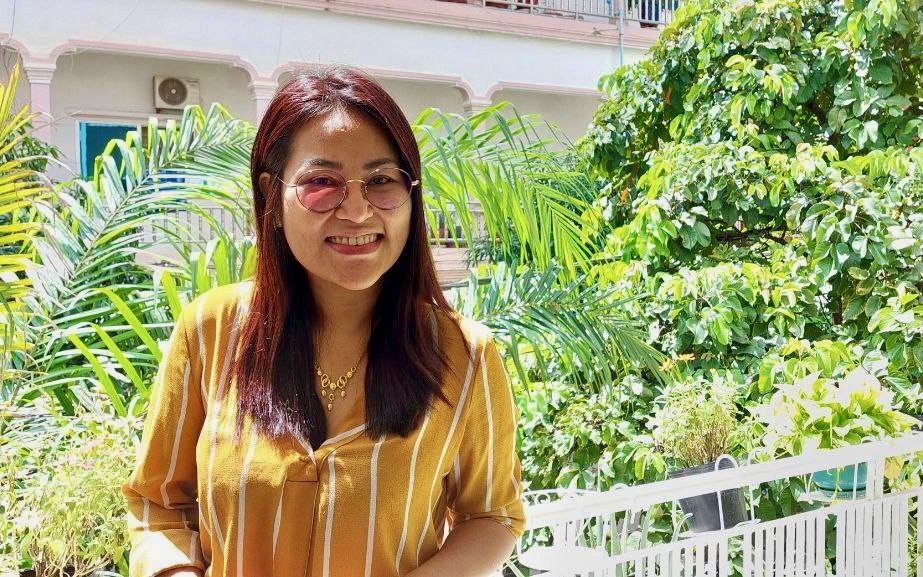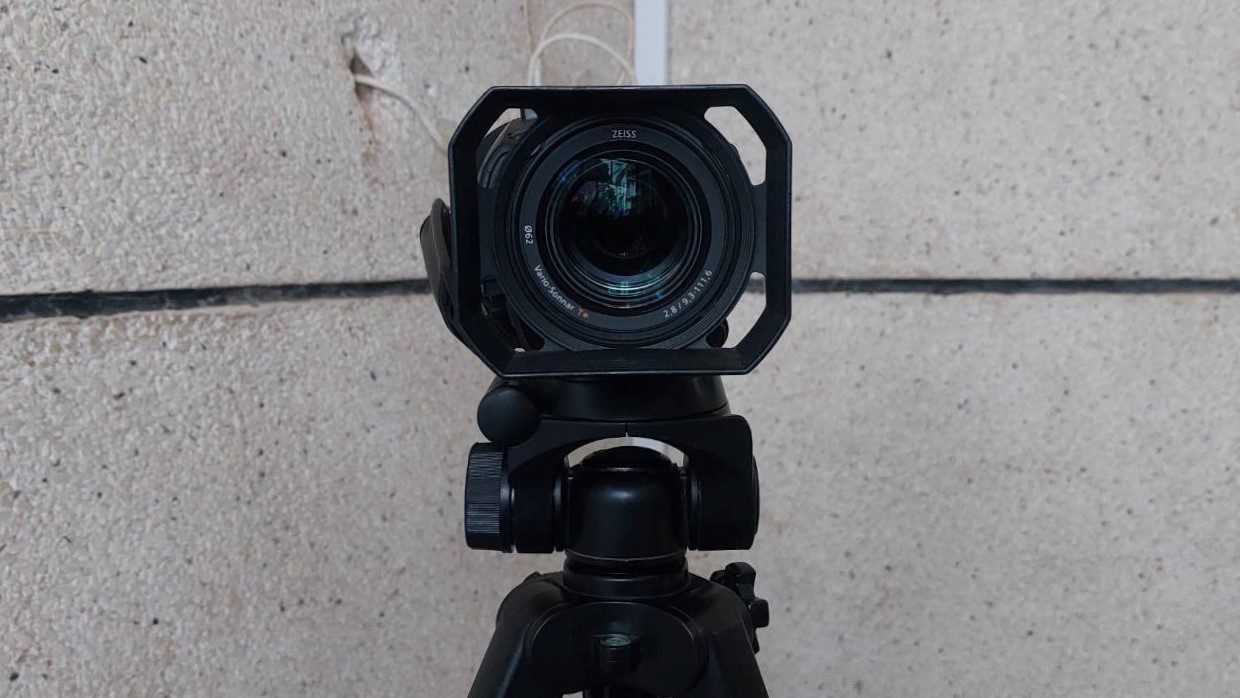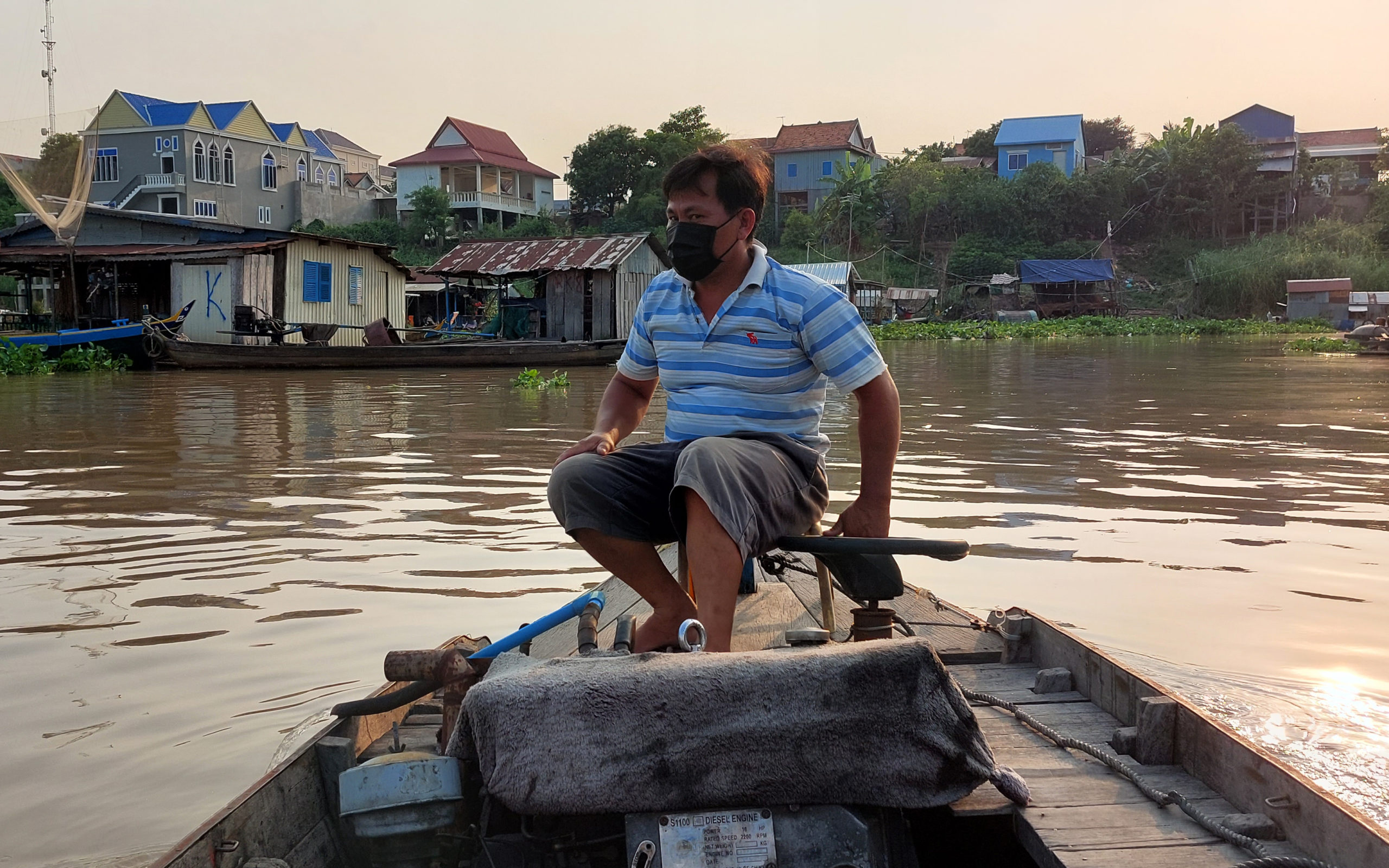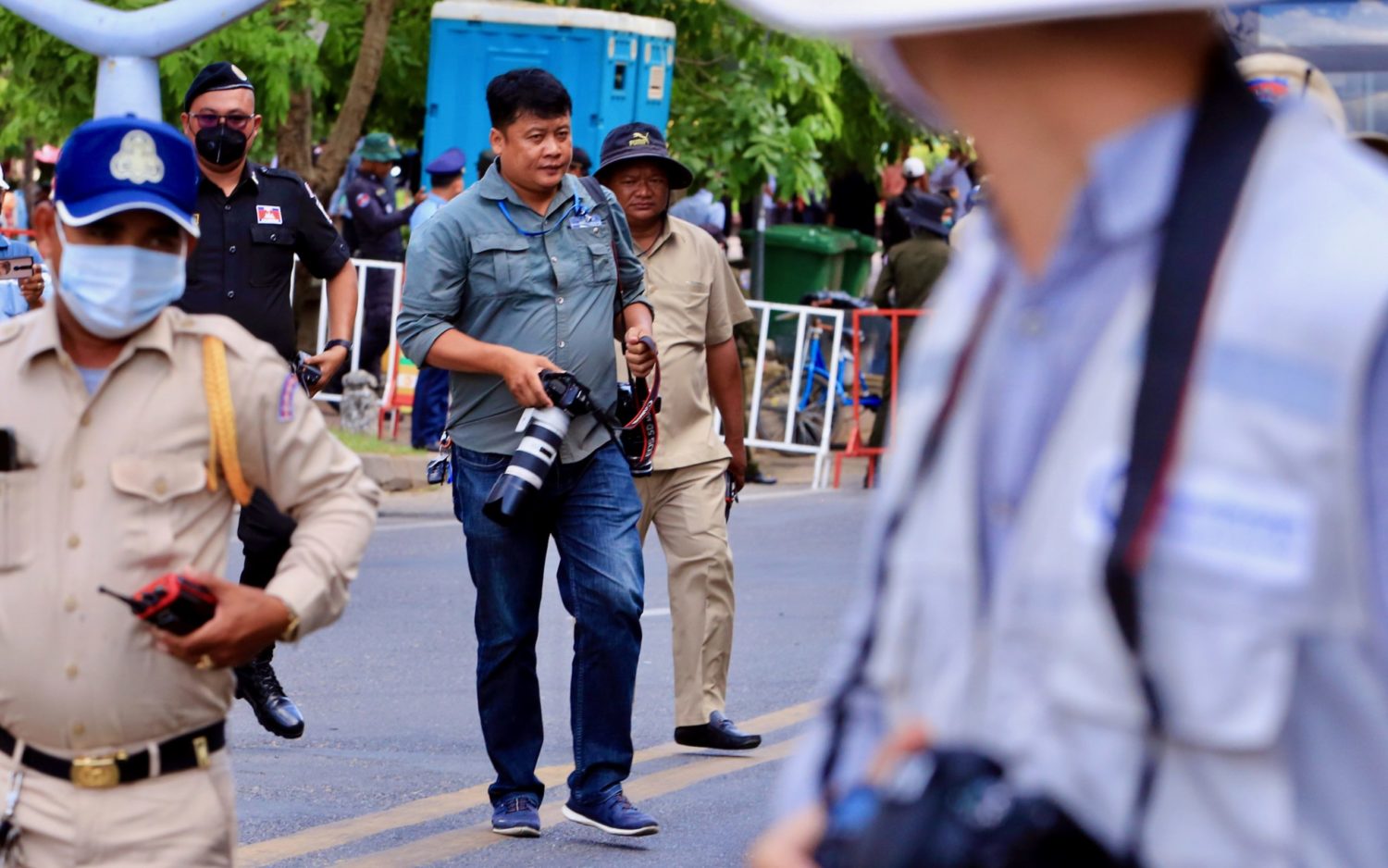A woman jailed after fighting back against her abusive husband. A prosecutor absolved of domestic violence against his wife.
An ethnic Vietnamese community evicted amid popular prejudice. Nationalists complaining over a university’s Vietnamese language course.
Overbearing attitudes toward women’s virginity. Sexual harassment at an NGO program.
Deep-seated issues around gender and ethnic discrimination flared up throughout the year, both in strife and in acts of courage.
On one side was callous behavior — in media coverage, law enforcement and casual prejudice — but on the other side was celebration. Minority groups and individual champions pressed their right to be heard, accepted and treated fairly.
Feminism
“Some words we cannot accept, like yelling that we are a group polluting society and destroying Cambodian culture,” said Cheath Chansolinda, a podcaster on gender stereotypes, in July.

“There is one movement that walks in a positive way, but there’s also a movement that is counterproductive,” added feminist NGO Klahaan’s director Bunn Rachana. “But I think this is normal. Most people are scared of change. And feminism is a movement to change social norms for women.”
The list of issues faced by women and gender minorities is long, including the following small fraction:
- Women remain locked out of positions of power; just 10% of newly elected commune chiefs this year were women. (Even as women candidates offered unique and valuable perspectives.)
- Authorities rarely act on violence against women.
- Double-standards around virginity cause shame and anguish and make abortions more dangerous.
- Mothers and daughters disproportionately bear the responsibilities of housework, limiting their work and education.
- Sexual harassment from teachers and trainers, as authority figures, impedes opportunities.

Filmmaking Students Allege Sexual Harassment by Bophana Center Trainers
Female filmmaking trainees are speaking out about alleged sexual harassment at a Bophana Center training program — including inappropriate conversations on field trips and touching they felt uncomfortable with — saying they don’t want it to keep happening to other women.
But many have nevertheless raised their voices in defiance.
“We’ve also had mental health [challenges] from verbal attacks on our social media. For example, I have a tattoo on my body. While I’m doing a show, people comment that I look like a prostitute. That happens almost every time,” said Klahaan’s Rachana.
Vietnamese in Cambodia
Sixty-percent of ethnic Vietnamese young women surveyed and 90% in indigenous groups faced discrimination, including problems at school and especially when using their language, a research report found.
Indigenous groups are facing extensive land loss, while ethnic Vietnamese communities remain stateless. Floating communities have faced repeated eviction — and because ethnic Vietnamese permanent residents of Cambodia cannot own land, they have few options and face negligence and legal discrimination in resettlement projects.
In March, reporters visited a community of ethnic Vietnamese fishers being kicked out of Phnom Penh. Chov Yeang was born in Chroy Changva, and has Khmer identification cards dating back to 1986. But he is ethnically Vietnamese, and was stuck on the river at the Vietnamese border as neither Cambodia nor Vietnam would take him — an outcast because of Cambodia’s “Khmer” national pride.
“I feel angry but I do not know what to do because it is their country,” he says, referring to the country where he was born.

Eviction Stalled for Floating Communities, but Options Limited for Ethnic Vietnamese
The floating communities in Phnom Penh have been allowed three more years on the water, but the majority ethnically Vietnamese families say they have few options on Cambodian land.
In October, an ethnic Vietnamese community evicted from the Tonle Sap lake to a resettlement site in Kampong Chhnang spoke of their Khmer and Cham Muslim neighbors receiving land while they paid rent. They had their national ID cards and other official documentation revoked around five years ago, and received “permanent residency” cards instead. They must pay to renew them every two years, and the residents have been unable to have them recognized to get jobs or open bank accounts.
Right to Expression
The Women’s Affairs Ministry in August urged news publications to report on domestic violence seriously, and called out insensitive media coverage — several outlets told the stories in a “humorous” way or to shock their audiences, the ministry said.
But raising serious issues in the country remains a challenge:
- A live interview of land disputants got the publisher of Los Seng News put under court supervision.
- Authorities repeatedly blocked and harassed reporters and photographers at street protests.
- A government official was questioned by police after criticizing agricultural policies.
- VOA and VOD were denied entry to Prime Minister Hun Sen’s post-Asean Summit press conference.
- A government spokesman said journalists should be notifying provincial information departments before repeated reporting trips.
- Activists — frequently jailed — faced pressure and surveillance for raising environmental and other issues.
In one proposal, news organizations — including VOD’s parent organization the Cambodian Center for Independent Media — suggested the establishment of an independent media council to adjudicate disputes and complaints, and avoid the criminalization of journalism and advocacy.












